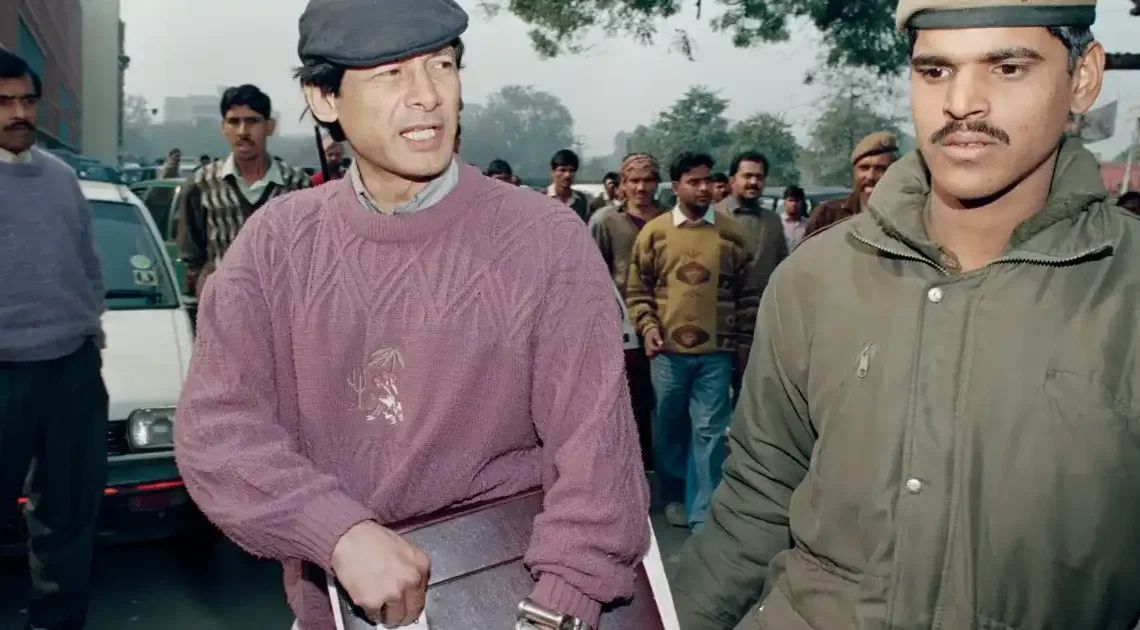
Meet Charles Sobhraj’s Parents: Sobhraj Hatchard Bavani and Tran Loang Phun
Charles Sobhraj, infamously nicknamed “The Serpent” and “The Bikini Killer,” was born on April 6, 1944, in Saigon (now Ho Chi Minh City), Vietnam, during the waning days of French Indochina.
Of mixed heritage, he was half-Sindhi Indian on his father’s side and half-Vietnamese on his mother’s. Originally named Hotchand Bhawnani Gurmukh Sobhraj, he later converted to Catholicism as a teenager, adopting the name Charles, though his father’s Sindhi background suggested early Hindu influences.
Trending Now!!:
His father, Sobhraj Hatchard Bavani, a Sindhi tailor, moneylender, and shop owner, denied paternity and abandoned the family when Charles was young.
His mother, Tran Loang Phun (also known as Song), a Vietnamese bar hostess and shop assistant, later remarried French Army Lieutenant Alphonse Darreau. Though Darreau formally adopted Sobhraj, he refused to grant him his surname, reinforcing the sense of rejection that haunted Charles’ early years.
From this union, Sobhraj gained a half-brother, André Darreau, along with other half-siblings, but he remained the troubled outsider of the family.
Sobhraj’s childhood was turbulent, marked by instability and constant moves between France and Vietnam due to his stepfather’s military postings. At a strict Catholic boarding school in Marseille, he proved unruly, often truant and resistant to discipline.
By his teenage years, he was already dabbling in crime—running away from home, stowing away on ships, and committing thefts. At 19, he served his first prison sentence in Poissy prison near Paris for burglary, a low point that saw his parents disown him.
Standing around 5’8″ (1.72–1.73 m), Sobhraj grew into adulthood as a magnetic but deeply manipulative figure. His personal life was as chaotic as his crimes.
In the late 1960s, he married Chantal Compagnon (sometimes identified as Chantal Desnoyers), whom he met in Paris. Remarkably, he proposed to her on the very day of his arrest for auto theft.
They had a daughter, Usha Sobhraj, born in 1970 in Mumbai. However, Chantal eventually abandoned both him and crime, returning to France with Usha in 1973. Some sources also suggest Sobhraj fathered other children, such as a son named Pranck Sobhraj and a daughter, Muriel Anouk Sobhraj, though these remain unverified.
In 2008, while serving a prison sentence in Nepal, Sobhraj claimed to have married Nihita Biswas, his Nepalese interpreter, who was 44 years his junior. The wedding, allegedly held inside Kathmandu’s central jail during the Dashain festival, was denied legal recognition by Nepalese authorities.
Sobhraj’s romantic entanglements were as notorious as his crimes. His lovers often became accomplices, with the most famous being Marie-Andrée Leclerc, a Canadian nurse who aided him through the mid-1970s until her death in 1984.
He was also linked to women, including Indian advocate Sneh Sengar, German prisoner Jacqueline Kuster, and several unnamed partners from India, including a Madarasi woman and a Punjabi woman. His relationships, characterized by manipulation and dependency, reflected the charisma that allowed him to lure victims and accomplices alike.
Though often remembered for his string of murders targeting Western backpackers along Asia’s hippie trail in the 1970s, Sobhraj’s story begins with a fractured family, rejection, and a life of delinquency. Criminologists often point to his unstable upbringing as the seedbed for the psychopathy that would later make him one of the most infamous serial killers of the 20th century.
Sobhraj Hatchard Bavani
Sobhraj Hatchard Bavani, Charles‘ father, was a light-skinned Sindhi Indian expatriate from a trading family with roots in Mumbai, operating in the vibrant colonial hub of Saigon.
A shrewd businessman, Bavani ran two successful tailoring shops and worked as a moneylender, catering to the French colonial elite in the so-called “Paris of the Orient.”
His Sindhi heritage, renowned for its entrepreneurial acumen and mobility, led him to maintain an affluent second home near Pune, India, splitting his life between Southeast Asia and the subcontinent. Charismatic and persuasive—traits his son would later mirror—Bavani built a prosperous life far from the upheavals of Partition-era India.
His relationship with Tran Loang Phun was fleeting and never formalized, producing Charles but ending abruptly when the boy was three or four. Bavani denied paternity and abandoned the family, returning to India to marry a local woman, leaving Phun and young Charles in Saigon.
This rejection left Charles stateless at birth, a bureaucratic and emotional limbo that fueled lifelong resentment. In a diary entry quoted in interviews, an adult Sobhraj vowed, “I will make you regret that you neglected your father’s responsibility.”
Contact with Bavani was rare; a brief attempt to reconnect Charles with his father’s family in Pune at age 17 ended in failure, with the teenager hating Indian life and stowing away to return to France. Notably, in 1973, while Charles was jailed in Delhi for an armed jewelry heist, Bavani provided bail money, a rare act of paternal support.
Tran Loang Phun
Tran Loang Phun, Charles’ mother, was a Vietnamese woman navigating the hardships of wartime Saigon under French colonial rule. Described as a “waif” in biographical accounts, she worked as a bar hostess and shop assistant, roles that offered meagre survival in the city’s gritty nightlife scene.
Life for Vietnamese women like Phun was precarious, with limited opportunities amid the chaos of the Vietnam War’s early stirrings. Her brief, non-marital relationship with Bavani left her pregnant and abandoned, forcing her to fend for herself and her son.
Enraged by Bavani’s desertion, Phun quickly sought stability, entering a relationship (or marriage) with Alphonse Darreau, a French Army lieutenant stationed in Indochina. This union granted Charles eligibility for French citizenship, a critical asset for his later border-hopping crimes.
Phun raised Charles “à la dure” (harshly), as French sources note, instilling resilience but little affection. After moving with Darreau to Marseille, France, and later back to Saigon, she prioritized her younger children from the new relationship, leaving Charles feeling like an outsider.
His disruptive behavior—running away, pranks, and defiance at a Catholic boarding school—reflected this neglect. When Charles landed in Poissy prison at 19 for burglary, Phun never visited, a betrayal he later blamed for hardening his heart: “It’s almost like she didn’t care… I believe she was that kind of woman,” he told documentary interviewers.
Yet, her colonial ties secured Charles’ French citizenship in 1970, enabling his global schemes. Phun’s later life remains obscure, and she has faded from public view, her story overshadowed by her son’s infamy.
NOTICE!! NOTICE!! NOTICE!!
At TheCityCeleb, we strive to provide accurate and up-to-date biographies and entertainment news, focusing on celebrities. Our editorial team researches information from reputable sources, including interviews, official statements, and verified media.If you spot an error or have additional details, please contact us at editor@thecityceleb.com. We value your feedback and are committed to maintaining trustworthy content.


